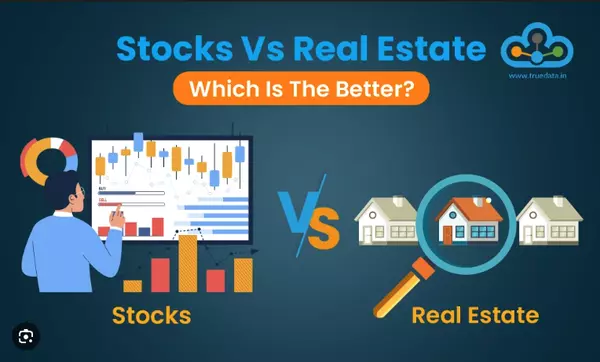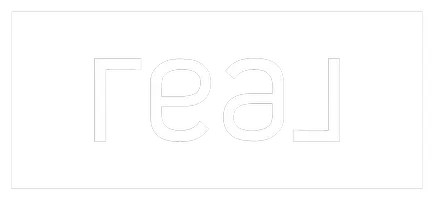How to Calculate Cash Flow in Real Estate (And Why It Matters More Than You Think)
Introduction to Real Estate Cash Flow
Cash flow is the beating heart of real estate investing. It's not just about buying a property and hoping for appreciation—it's about ensuring that your investment is putting money in your pocket every single month. Whether you're a first-time investor or scaling your portfolio, understanding how to calculate, evaluate, and optimize cash flow can make the difference between thriving and surviving in this industry.
Understanding the Basics: Income vs. Cash Flow
What Is Income in Real Estate?
Income in real estate typically refers to the gross rent collected from a property. For example, if you rent out a home for $2,000 per month, your annual rental income would be $24,000. Sounds straightforward, right? But income alone doesn’t show the full picture.
What Is Cash Flow?
Cash flow is what’s left after you pay all the expenses related to owning and operating the property. These might include mortgage payments, taxes, insurance, repairs, utilities (if applicable), and property management fees. The formula is:
Cash Flow = Total Rental Income - Total Operating Expenses
Cash Flow vs. Income: Why the Difference Matters
While income tells you what your property earns, cash flow tells you what you keep. It's the number that reflects your property's true performance. You can have high rental income and still be losing money monthly if your expenses aren’t in check.
Why Cash Flow Is the Lifeblood of Your Investment
Financial Stability Through Positive Cash Flow
Positive cash flow means you’re making money every month. This provides a steady stream of income that can support your lifestyle, grow your reserves, or fund future investments. It’s predictable, reliable, and scalable.
Cash Flow as a Risk Buffer
When vacancies hit or repairs pop up, positive cash flow acts like a shock absorber. It gives you breathing room and keeps you from scrambling when unexpected costs arise.
Fueling Growth Through Reinvestment
Consistent cash flow lets you reinvest. You can pay down debt faster, save for your next down payment, or improve your current properties—all without dipping into your personal finances.
Cash Flow vs. Equity: Which One Wins?
Defining Equity in Real Estate
Equity is the difference between your property's market value and what you owe on the mortgage. It grows over time through mortgage paydown and appreciation. Equity builds wealth—but it's not liquid.
The Immediate vs. Long-Term Payoff
Cash flow gives you money now. Equity pays you later—when you refinance or sell. Both matter, but if you're strapped for monthly cash or planning to scale, cash flow should be your immediate priority.
Why You Need a Balance of Both
Think of equity as the nest egg and cash flow as the fuel. You want both. But in real-time decision making, cash flow often dictates whether you can hold onto the asset long enough to see the equity gains.
How to Calculate Cash Flow Accurately
The Core Formula
Here it is again: Cash Flow = Total Income - Total Expenses
Sounds simple, but the devil’s in the details.
Breaking Down Income and Expenses
Income includes:
- Monthly rent
- Additional revenue (laundry, parking, storage, etc.)
Expenses include:
- Mortgage principal & interest
- Property taxes
- Insurance
- HOA fees
- Maintenance & repairs
- Property management fees
- Utilities (if paid by you)
- Vacancy reserve (typically 5-10%)
- CapEx reserve (Capital Expenditures—budgeting for big-ticket items like roofs, HVAC, etc.)
Common Pitfalls to Avoid
Many investors forget to include vacancy or CapEx in their cash flow analysis. Don’t make that mistake. Always underwrite conservatively so your numbers hold up in real-world conditions.
Top Ways to Improve Cash Flow
Increasing Rental Income Strategically
Raise Rents (The Right Way)
If market rents have climbed, consider adjusting yours—gradually and ethically. Provide value (like minor upgrades or better communication) before raising rent.
Add Additional Revenue Streams
Think: paid parking, storage units, coin laundry, or even pet fees. These small additions can add hundreds per year.
Cutting Down on Operating Costs
Smart Refinancing
If interest rates drop or your credit improves, refinancing can significantly lower your mortgage payments—improving cash flow overnight.
Proactive Maintenance and Management
Fix problems before they become emergencies. And if you self-manage, consider where tech or virtual assistants can cut time and costs.
What About Negative Cash Flow? When It Might Make Sense
High Appreciation Markets
In booming metros like Toronto or Vancouver, properties might break even (or lose money) monthly, but double in value over 5–10 years. If you have other income to offset short-term losses, this can be a smart play.
Value-Add Opportunities
Buying a fixer-upper or underperforming rental? Temporary negative cash flow might be worth it if you have a plan to increase rents or reduce expenses post-reno.
Tax Strategy Benefits
Sometimes, negative cash flow can help offset your taxable income (especially with depreciation). Talk to an investor-savvy accountant.
Real-World Example: A Simple Cash Flow Breakdown
Let’s say you buy a rental for $400,000 with 20% down. Your rent is $2,000/month.
- Mortgage (P&I): $1,200
- Taxes: $200
- Insurance: $100
- Property Mgmt: $160
- Maintenance & CapEx: $150
Total Expenses: $1,810
Cash Flow: $190/month or $2,280/year
Now imagine refinancing or self-managing—that could boost cash flow by hundreds.
Key Takeaways for Real Estate Investors
- Always calculate cash flow before buying.
- Don’t confuse income with profit.
- Build in reserves for maintenance and vacancies.
- Seek both cash flow and equity—but prioritize cash flow for financial freedom.
Final Thoughts: Cash Flow Is King (But Don’t Forget the Throne)
Cash flow gives you control, flexibility, and options. It lets you hold your property long enough to benefit from appreciation and equity growth. It’s not just about the numbers—it’s about peace of mind and long-term success.
Want help analyzing your next deal or planning out your strategy? I'm just a message away.
FAQs About Real Estate Cash Flow
What is considered a good cash flow per month?
It depends on the market, but $200–$500/month per single-family home or $100–$300/unit for multifamily is a solid target.
Can a property have positive cash flow and negative equity?
Yes—especially in declining markets. You may still make money monthly even if the property value is underwater.
How do I improve cash flow without raising rent?
Reduce expenses (refinance, self-manage), add value-add income streams, or improve tenant retention to cut vacancy costs.
Should I avoid negative cash flow at all costs?
Not always. In high-growth markets or major value-add plays, short-term losses can lead to big long-term wins—if you’re strategic.
What’s the best way to track cash flow consistently?
Use a spreadsheet, property management software, or apps like Stessa or RentRedi. The key is consistency and accuracy.
Stay focused. Invest smart. Track your numbers. And remember—cash flow isn’t just king. It’s the crown, the scepter, and the strategy.
Your Realtor, Fin
Categories
Recent Posts










GET MORE INFORMATION

Agent
